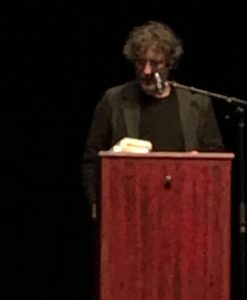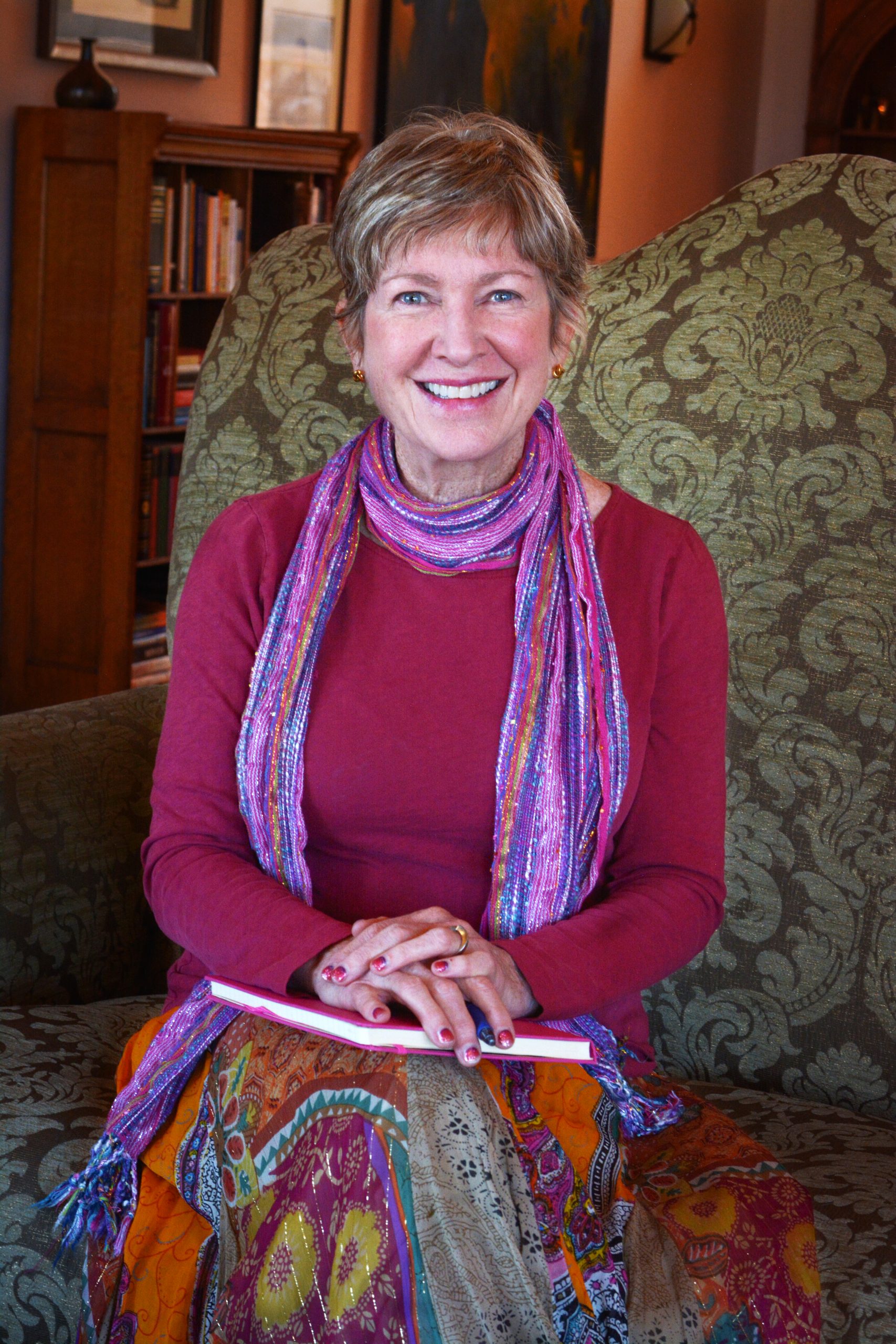
(Photo Credit: Elise Sunday)
[New Tidbits will appear at the top of the list]
- You do NOT have to follow a writing “recipe.” Trust your Muse(s) to take your writing where it wants to go (and then think about editing)!
- Award-winning author Kathleen Kaska has a whole guest blog post with wonderful writing tips HERE!
- I love the year-round contests run by nycmidnight.com. From micro-fiction (100-words!) to short story length to rhyming short stories, their challenges will excite your Muse and expand your brain!
- Submit your work to lots of places! Friends of the Alamosa Public Library publishes an anthology every year and it’s FREE to submit!
- Wondering about the legality of using other people’s work and quotations in your work? Check out Jane Friedman’s Writer’s Guide to Fair Use and Permissions article with easy-to-follow flowchart! (Thanks to Cookie Murphy-Pettee for sharing this piece with me)!
- “Just write the book!” (tip given to author Kathleen Kaska)!
- Feeling housebound during this ongoing COVID-19 pandemic? Write about it. Write about your frustrations, your rage, your forgetfulness, your new habits . . . see how you might offload any negativity onto new characters, or go ahead and claim it all for yourself in a journal. We are living through historic times, though not all will live.
- Support other authors! Indie authors need all the help they can get in this publication-drenched world. Share the love!
- You do NOT have to write every day! It’s great to practice, but sometimes we just need to take a breather from the expectations we have for ourselves. You might be surprised to discover new ideas popping into your head when you give yourself permission to step away from a project for a bit!
- If you’ve been a “pantser” your whole writing life, consider what author Jessica Brody presents in her book Save The Cat! Writes A Novel. I’ve just set up my cork board for my next series and I already know it’s going to be a fabulous aid!
- Be aware of your surroundings! Pay attention to the people and things and sensory experiences surrounding you every day. Take note of what catches your attention. You may use these notes in your work someday! Listen to my episode “Crazy Inspiration“!
- Does anyone remember summer vacations (WAY back in the day)? Even though many authors aren’t little kids anymore (well, physically, anyway), we still need to give ourselves a break every now and then. PLAN for time off, and then take it…without guilt! We deserve it (and so do our Muses)!
- Working on short stories? See what’s being marketed on TV! Shows like Black Mirror, Room 104, and Love, Death & Robots will give you a good feel for what grabs viewers (and reader, I hope). Warning: Many episodes are dark.

Neil Gaiman at the Denver Paramount Theater 14 NOV 2018 - Attend literary events when possible to meet authors who are already famous and those who still believe they will be someday!
- Find people who don’t know you well to critique your work, and don’t be defensive when they make suggestions. You’re writing for readers, and readers may interpret things differently from the way you may have intended!
- Subscribe to the Blood-Red Pencil blog! Here’s a wonderful piece about Writing Rules by Maryann Miller.
- Challenge yourself with a “Flash Fiction” piece of no more than 1,000 words! Have someone suggest a location, an object, and a genre and give yourself 48 hours to complete a story around them. If you can write a complete story in 1,000 words, you’re on your way to greater things! (it’s harder than you think)
- Even if you are reading purely for pleasure, invest a few moments in reflecting on what you may have learned about yourself from the reading experience.
- If you’ve never listened to a podcast before, it’s time! Check out these 20 free writing podcasts and my podcast Alligator Preserves!
- Be open to reading–and maybe even writing in–a new genre this year.
- Every so often (perhaps one day per week), do nothing. Remember when we used to get bored? What happened to those days?
- Don’t try to write a whole book in one sitting. Write one sentence. Make it a wonderful sentence. It just might inspire you to write more.
- Stop talking about writing your book/story/play/poem…
- Sign up for NaNoWriMo. Even if you don’t complete 50K words, you’ll write more than you would if you instead focus solely on upcoming holiday obligations.
- Focusing on upcoming holiday obligations? Instead of buying things no one needs (and everyone needs a new calendar!), think about making a philanthropic contribution to the arts on behalf of someone.
- Purchase–and read–a book outside your favorite genre. Find something in it to use in your own writing.
- There are many great books about writing and life. Read one soon. Some of my favorites include: Anne Lamott’s Bird by Bird, Stephen King’s On Writing, Steven Pressfield’s The War of Art and Do the Work, and William Zinsser’s On Writing Well (I may need to buy this 25 Anniversary edition!)
- Spend a buck on a Lotto ticket. When you get home, write about how you think your life will change when you win. When you’re done, read this short story by W.W. Jacobs: The Monkey’s Paw.
- Make a decision today that you will make time to write for 15 minutes every day on whatever idea or project you’d like. Fine. You may take the weekend “off.” But don’t.
- Study song lyrics from memorable tunes to find nuggets of truth and inspiration for your writing.
- Keep an hourly journal for one day of what you did in each hour. Repeat for several days and then evaluate if your hours are being spent in ways that make you happy.
- Make a decision today to publish something new, or publish something for the first time, by the end of the year (a newspaper article, a blog post, an essay or short piece on social media, a short story, a long story . . . ). GO!
- Read voraciously! And consider downloading audiobooks (like Waterwight!) for those times you’re traveling or doing mundane tasks. The more you read, the more you’ll learn about what works and doesn’t work in storytelling.
- Observe people everywhere you go. Note descriptive details and quirks. Keep a character notebook.
- Open your mind to the possibility of transforming the mundane into the magnificent.
- If you do all of your writing on a keyboard, try freehand writing in a notebook once in a while. Handwriting works a different part of your brain, a part where new treasures may lurk!
- Savor sumptuous sentences you read. Maybe even write them down. Identify why they made you drool, weep, guffaw.
- Write about one memorable event. Try to make your reader experience what you experienced. Let me know if I succeed with my most recent hunting piece: Harvesting Roadkill.
- Write in a different location. Not always, of course. You might have the perfect place to write, where everything just seems to flow. Change your environment now and then to taste what flavor it might bring to your writing.
- Every once in a while, STEP AWAY from your distractions (my biggest ones are Facebook/Twitter/Instagram) and do the “Deep Work” your projects deserve.
- Remember to acknowledge those who help you along the way: editors, beta readers, friends and family (who probably shouldn’t be your editors!), local businesses that help you with marketing your work . . . and keep track of them throughout your project lest you forget later!
- RESEARCH “service providers” thoroughly before committing $$$ !
- “Writer’s block” is an excuse. And it’s trite. Don’t use it.
- When asked who had things to add to my list, Ed Morris (I Heart Beer entertainment website) (Beer lover’s website!) wrote, “Listen to music to set the mood…If I am writing speculative fiction, movie soundtracks work fine. When I am writing short form (for a blog) then 80’s pop music works good.”
- Always check out reviews of web services before you purchase.
- Find a writing contest and submit an entry. Even if you don’t “win,” you will have completed a written project, and the anticipation of waiting for the results is exciting.
- The day after a big event (a holiday, a birth, a death, a life-changing experience…), write down the things you will want to remember ten years from that event. It doesn’t even have to be a big event. Try to remember something specific that occurred ten years ago and you’ll see what I mean! Find a “thing” today with a history attached to it and see where it might take your writing.
- Look around your home to see what you might pass along to someone who might actually need the things that clutter your drawers and closets. Then do it, pass those things along, and feel space open in your mind for creativity.
- Almost everyone makes a list of resolutions for the new year. Instead, resolve each day to write something meaningful, be it one beautiful sentence in a journal, a haiku (or other poem), or a chapter for a book.
- Start a list of things for which you are thankful. I challenge you to come up with at least 3 entries per day. Not my idea. People have written books about this practice!
- Go to a coffee shop and write down conversations you hear. Capture authentic dialogue.
- Do NOT try to blow crumbs off your keyboard while you still have food in your mouth!
- Think before you post. Ask yourself if you can live with the fallout.
- Make writing your job. The dishes can wait until your work day is over.
- Taking action will make things happen. Or, conversely, inactivity will breed stagnation (or worse).
- The loss of a life can bring change, growth, forgiveness, and opportunities to do great things–to those who continue to live.
-
There will be highs and lows, smiles and sadness. Let them happen. Then write about them.
-
Adagio Teas are superb.

Adagio teas leave you with a surprise! -
If you follow a schedule (even if it gets tweaked along the way) you can accomplish much.
-
Taking breaks to do creative things can make you more creative! (too obvious?)
- Don’t feel like you need to create your “platform” and complete your entire book on your first day as a writer. Accept that both take years.
- BE The Little Engine that Could
- Be okay with saying, “Screw today’s schedule to the wall!”
- Maintain enthusiasm for tomorrow.
- Don’t try to write creatively while watching TV. Just don’t.
- It’s okay to get sidetracked, but don’t forget your ultimate goal.
- Must get a good night’s sleep when possible, and try to remember (write down) your dreams.
- Shake things up.
- Remember that all material things are transient.
- Enjoy a bit of sunshine when and where you can (see my page “Balls”).
- Gratefully accept comments and criticism while remembering that most people have their own lives to focus on every day!
Laurel McHargue / Laurel’s email / Leadville Laurel Facebook page / Laurel’s Twitter / Laurel’s Amazon Author Page
#writingtips
Publisher: Strack Press


12 replies on “Writing Tips”
Don’t forget traveling to new places (Abu Dhabi perhaps) challenges your mind to find new solutions to seemingly everyday problems. New places also create a sense of awe similar to childhood discovery with new and wonderful sights, sounds, smells and feelings.
Well written! Abu Dhabi is clearly an agenda item!
I rediscovered a bit of childhood awe working as a sub in a kindergarten class this week . . . it made me recall many important lessons from my kindergarten year. What a cacophony of sights, sounds, smells, and feelings in one little room, yet still the day is successful!
Write about your hands.
Nice! I love this one. You first!
Write about your feet or someone else’s feet. Remember the poem “The Pobble Who Has No Toes” ? Edward Lear knew the secret – look for inspiration in places we don’t normally pay much attention to, eh? And you might also add that blowing crumbs off the computer keyboard with a mouth full of coffee doesn’t work very well either, lol! (But please don’t ever tell anybody I did something so silly . . .)
HA! I won’t tell a soul about your “tip” blunder…
Love the idea of writing about what most people consider mundane. Even a freckle can take you places. There’s a title for a book!
Wonderful tips. Thank you, Laurel.
You’re welcome! Thanks for visiting.
Great writing tips, Laurel. One of the best tips I ever received was, “Just write the book!”
Yes! I’ll add it to the list (and credit you with sharing)!
Hey Laurel! Those are some great writing tips. It’s been so long since I’ve written anything (poetry was/is my thing). I might just try out a few of your tips and hopefully they will help reignite my passion for writing. I truly miss it.
Hey Dez! Thanks for visiting, and I hope you find small moments to get back into writing! Maybe even start by writing a letter to yourself (some might call that journaling). Don’t let past lags in writing stop you from starting! Truth be told, I’m a very sporadic writer. Start small. Maybe a 5-10 minute reflection in the morning or before you go to bed!